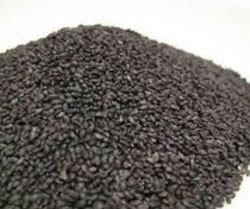- Email: sales@malharenterprises.net.in
- Phone: +91 9004684904
SEEDS
- Home / Seeds
Seeds
Kasturi bhindi / Abelmoschus moschatus
Sanskrit : TindishaEnglish name : Musk-Mellow, Musk Seeds,Ambrette Seeds
Cultivation :Abelmoschus moschatus (Hibiscus abelmoschus) is a tropical weedy shrub native to India valued for its scented seed.
Medicinal Uses : Musk mallow seed oil was once frequently used as a substitute in perfumes for animal musk. The bitter, sweet, acrid, aromatic seeds are used as a tonic and are considered "cooling, aphrodisiac, opthalmic, cardiotonic, digestive, stomachic, constipating,carminative,pectoral,diuretic, stimulant, antispasmodic,deodorant.

Kawanch Seeds / Mucuna pruriens
Sanskrit : Kapikachu, Atmagupta, KaunchEnglish name : Cowhage,Velvet Bean, Buffalo bean, Picapica
Cultivation :Mucuna pruriens is mostly found in India as well as other parts like Africa, Caribbean etc. It can be found in low rise forests and it is grown by many farmers in India also.
Medicinal Uses :The seeds of Mucuna pruriens have been used for treating many dysfunctions in Tibb-e-Unani (Unani Medicine).
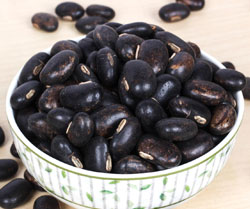
Tukmaria / Ocimum Sanctum
English name : Saint Joseph's WortCultivation :Tukmaria is originally native to India and other tropical regions of Asia. It has been cultivated there for more than 5.000 years. Its scientific name is Ocimum Basilicum. It is an annual herb which grows 30-130cm tall,. The flowers are small, white in color and arranged in a terminal spike..
Medicinal Uses : Basil seeds have antioxidant, anticancer, antiviral, antibacterial, antimicrobial, antispasmodic, antiseptic, antifungal, carminative, galactagogue, stomachic properties.The carminative properties are useful in providing relief in a wide range of digestive issues like flatulence, stomach cramps, indigestion, constipation etc.
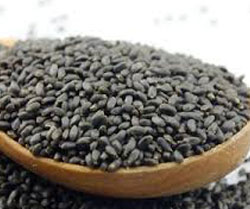
Babchi / Psoralea Corylifolia
Sanskrit :Bvalguja, Bakuchi, Chanderlekha, Chanderprabha, Kusthahantri, Sitavari, Somraji, Krishnaphala.English name : Psoralea Seeds
Medicina Uses :There are sevral medicinal benifits that have been assosiated with babchi seeds and oil.It contain properties that are anti fungal,anthelmintic,aromatic,aromatic and anti - bacterial.People use it as a stimulant or even a daiphoretic;at time people also make use of babchi because it has diuretic and laxative properties.
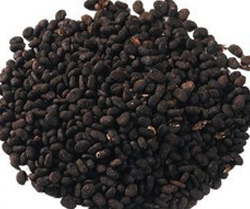
Alsi / Linum Vsitatssimum
Sanskrit :Atasi, Neempushpi, Alasi, Kshuma, picchala, Neela, NeelapushpinEnglish name : Linseed, Flaxseed.
Medicinal Uses : In Ayurveda, Flax is used internally in habitual constipation, functional disorders of the colon resulting from the misuse of laxatives and irritable colon, as a demulcent preparation in gastritis and enteritis. Externally, the powdered seeds or the press-cake are used as an emollient, in poultices for boils, carbuncles and other skin afflictions. Used in Soothing Body Lotion for dry skin.
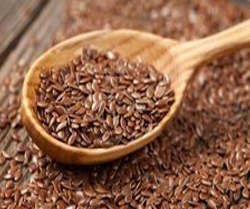
Babul Seeds / Vachella Nilotica
Sanskrit :Vachellia NiloticaEnglish name : Babul, babool, prickly acacia, black piquant, egyptian acacia, indian gum arabic tree
Medicinal Uses : Plants For A Future can not take any responsibility for any adverse effects from the use of plants. Always seek advice from a professional before using a plant medicinally. The bark, gum, leaves and pods are used in various traditional medicines[303 ]. The bark, leaves and pods are rich in tannins and so are astringent[269 ]. The bark is used to treat a wide variety of ailments in traditional medicine, both internally in the form of a decoction, and externally as a wash[269 ]. In particular, its astringency makes it an excellent treatment for diarrhoea and dysentery, whilst it is also used as a nerve stimulant and in treating conditions such as leprosy, coughs, and intestinal pains[269 ]. Both the gum and the bark have been used for treating cancers and/or tumours (of ear, eye, or testicles); chest problems including colds, congestion, coughs and tuberculosis; indurations of liver and spleen; fevers, gallbladder problems, haemorrhage, haemorrhoids, leucorrhoea, ophthalmia, sclerosis and smallpox[269 ].
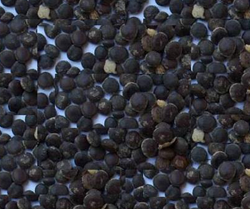
Tulsi Seed / Ocimum Tenuiflorum
Sanskrit :TulsiEnglish name : Holy basil/sacred basil
Medicinal Uses : Tulsi has been used for thousands of years in Ayurveda for its diverse healing properties. It is mentioned in the Charaka Samhita, an ancient Ayurvedic text. Tulsi is considered to be an adaptogen, balancing different processes in the body, and helpful for adapting to stress. Marked by its strong aroma and astringent taste, it is regarded in Ayurveda as a kind of "elixir of life" and believed to promote longevity. It is an elixir for cough; the leaves when chewed after meals acts as a digestive, and when taken before and after cold water bath controls temperature in the stomach and prevents cold. If sprinkled over cooked food in stored water, tulsi leaves prevent bacterial growth.
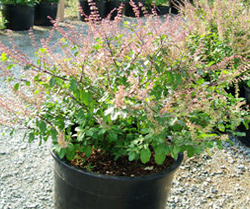
Flax Seed / Linum Vsitatissimum
Sanskrit :AlsiEnglish name : Linaceae (Linseed family)
Medicinal Uses : Flax, Linum usitatissimum, is a member of the genus Linum in the family Linaceae. It is a food and fiber crop cultivated in cooler regions of the world. Flaxseeds – the shiny, nutty seeds have an earthy aroma and a host of health benefiting properties. Flaxseed is an outstanding source of protein and fiber—and it also acts as a health protector.
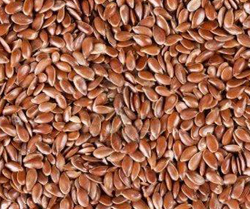
Basil Seed / Ocimum Basilium
Sanskrit :LamiaceaeEnglish name : Sweet Basil
Medicinal Uses : Basil seeds have been used traditionally in Ayurvedic and Chinese medicine, and now they’re starting to get noticed in the West. Although research is still emerging to support the various health claims surrounding basil seeds, they definitely look like a healthy seed worth adding to your diet.
